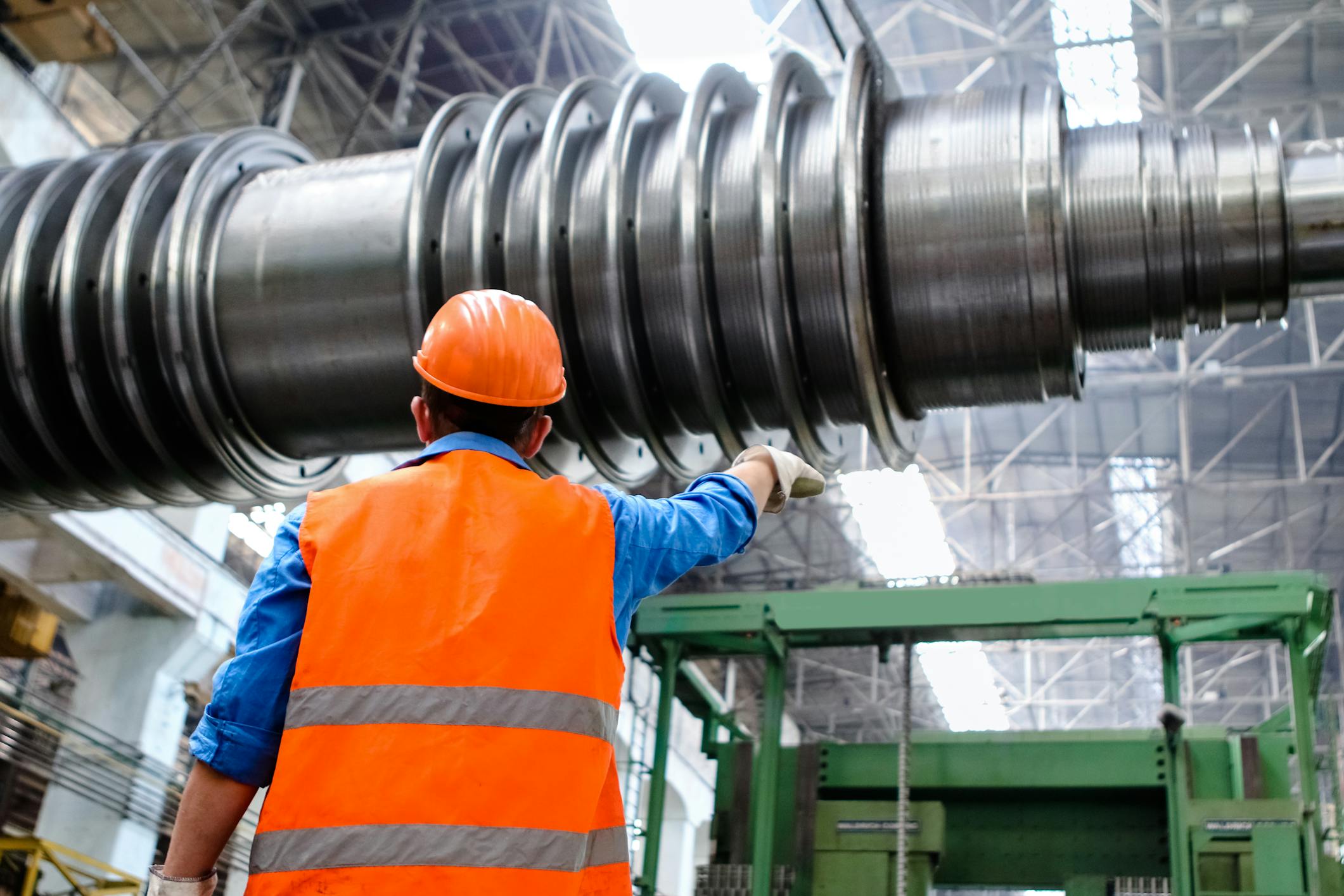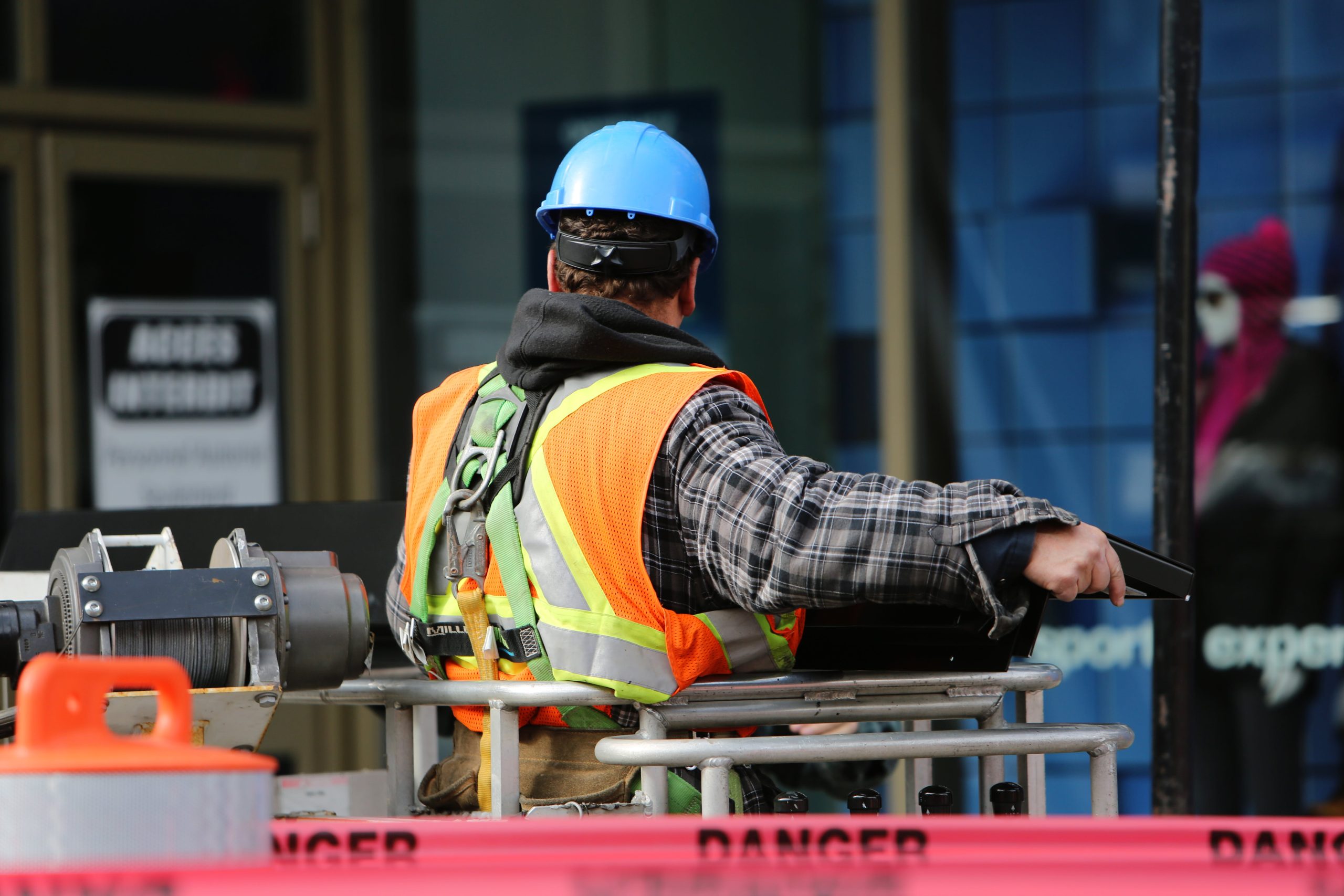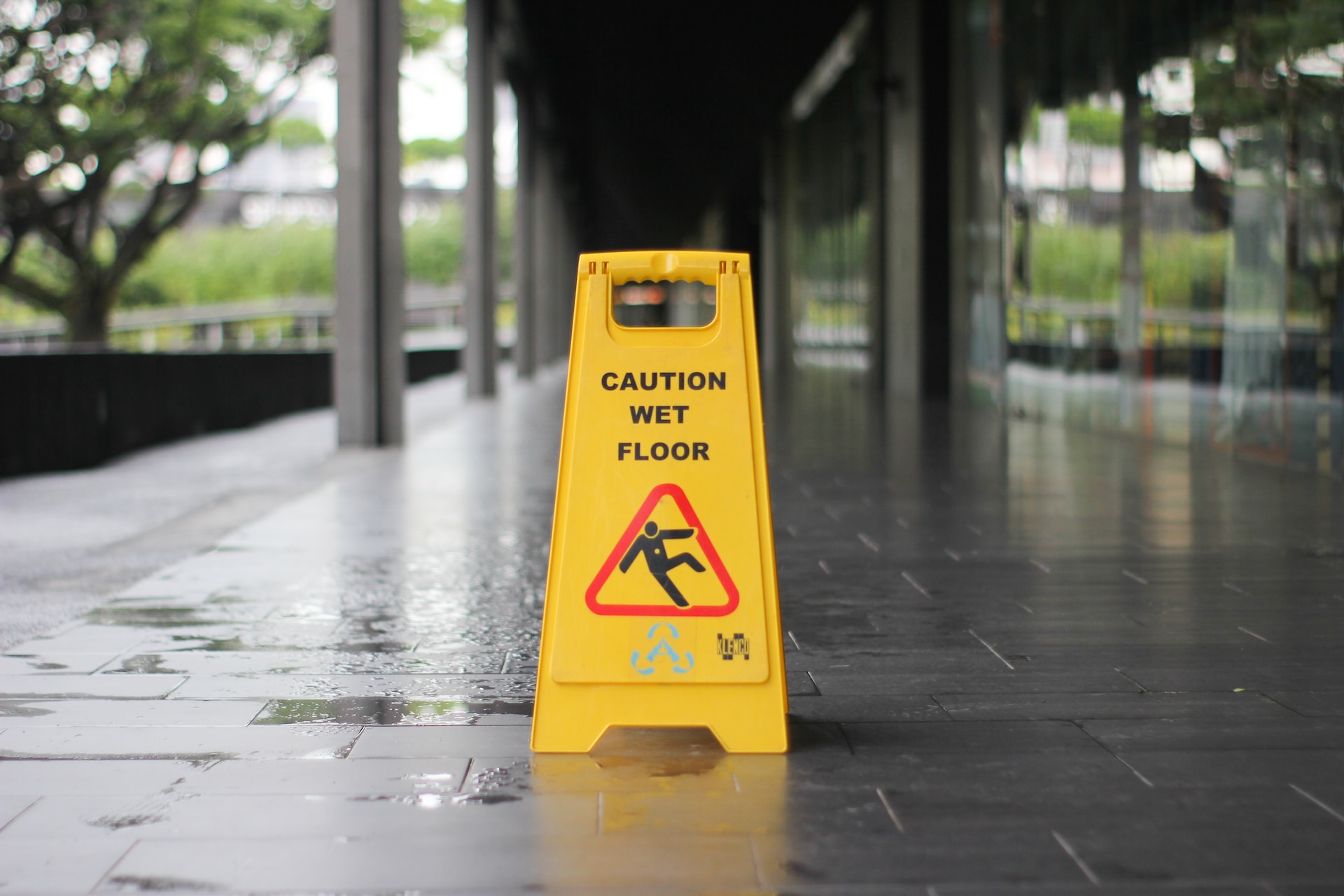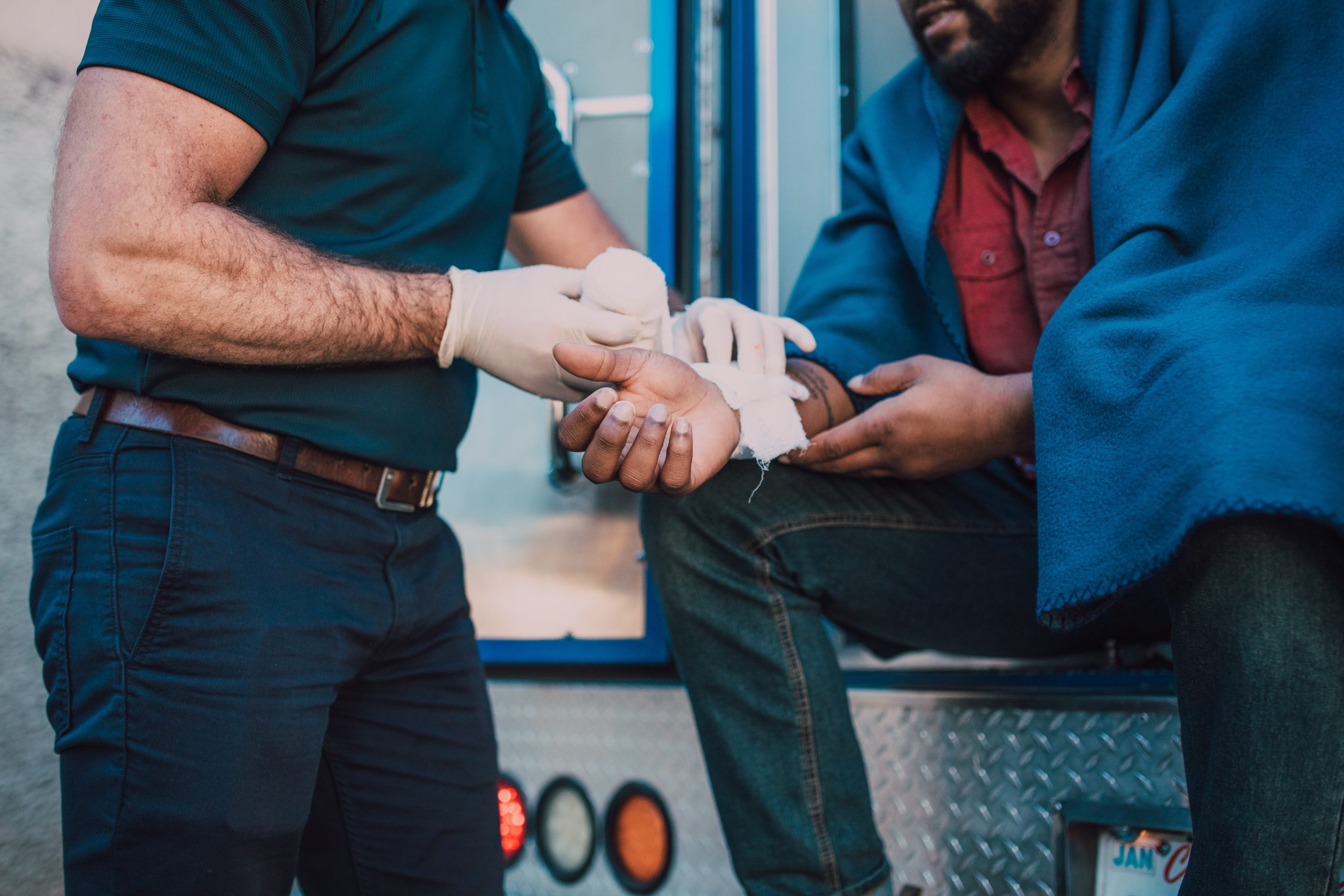Accident investigations
Planning for accidents at work
Every year in the UK, around two million people suffer from work-related illnesses and/or injuries whilst at work.
It’s sad to say that even nowadays, with modern technologies and advancement in health and safety processes, more than 140 people still lose their lives each year at work in the UK.
The cost to any business of an accident has a wide stretching impact: from the lost time, the financial/legal consequences, and the human cost in the aftermath. Sometimes, it’s more than a business can bear.
Accidents are unfortunate but they are sometimes inevitable, which is why you should be prepared for them if and when they happen.
At The Health & Safety Dept, we are here to take the stress out of accident investigations and to make an inherently stressful process, as smooth and as simple as possible, by making sure you are investigating accidents diligently and following the legislation to the letter.
Need help with reporting an Accident or Investigation?
Workplace accidents happen, and even with the proper health and safety processes in place, you can still get caught off-guard and find your company’s immediate response lacking. The Health & Safety Dept can be the support you need to lead accident investigations with impartiality and a systematic, evidence-based approach that results in actionable solutions.
Fact-finding, not fault-finding
The aim for us is to help your business identify what the root cause was for the incident, accident or near miss. This will then allow you to actively look at ways to stop and/or reduce the likelihood of similar incidents happening again. Being proactive saves lives.
It is not about looking for someone to blame, which only puts additional undue stress on your workers dealing with a tense situation. It is about finding the facts that prevent recurrence of the incident.
Step-by-step process that follows industry standards
We take clear standardised steps for accident investigations to ensure all relevant information is accounted for and that we make the right decisions:
- Background investigation including documentation, camera footage, training records, etc. to gain an understanding of the situation prior to the accident taking place.
- Accident site investigation done as soon as possible to secure the area, prevent tampering, gather evidence, and determine physical changes to the environment.
- Interviews with witnesses and injured persons done if possible with proper briefing and prepared questions.
- Preparing a comprehensive report that states the situation, provides relevant data, identifies causes, and recommends corrective actions.
Give you an impartial report
A well-drafted, detailed accident investigation is an essential part of the monitoring process that your business is required to carry out by law. Incidents, including near misses, can tell you a lot about how things actually are in reality within your business.
We can provide a report that is clear of any bias that might come from internal investigations and obfuscate important information. With our help, you get an objective view of the situation that leads to concrete solutions.
Led by a team of professionals
Our experienced health and safety team can help you navigate your way through your accident investigation process. We can start at the initial accident/incident record, continue through to on-site inspection of your control measures, and up to completing and submitting RIDDOR reports that may be required by your business.
Rest assured that you are going to be working with qualified professionals that follow procedures and deliver results, making sure to respect your company’s authority and safeguard the well-being of your employees.
Handle small to big accident investigations
From simple advice by phone to a full accident investigation and report, our team will ensure that your business receives all the support it needs. You are in good hands.
We have plenty of experience tackling various workplace accidents across industries. Our team of health and safety specialists know how to deal with cases of any size, scaling their efforts to match the needs of the investigation without compromising the quality of our services.
Why you should investigate every workplace accident
Workplace accidents, no matter how big or small they may seem upfront, should always be investigated. Their occurrence exposes failures in your health and safety systems that need to be solved as soon as possible. The process can also uncover so much that would prove beneficial to your company from legal, structural, and financial standpoints.
Help You Defend Against Legal Actions
The Management of Health and Safety at Work Regulations 1999 requires employers to have health and safety arrangements, which include arrangement for the management of accident, incident and near miss investigations.
There are specific industries that are required by laws to conduct workplace accident investigations for certain incidents, such as those where workers are exposed to extreme hazards like railways, mines, and nuclear installations.
For businesses outside such industries, there is still good practice to investigate workplace accidents to provide legal protection from relevant parties looking to pursue legal action.
Identify Hazards to Manage Future Risks
Investigations on workplace accidents raise awareness within your company about other hazards that might be present outside the specific situation that necessitated an investigation.
This process can also highlight obstacles that may prevent existing hazards from being properly addressed, and in turn, snowball into bigger problems. Such obstacles can then be dismantled so that risk assessment may proceed smoothly.
Gain Insight and Information
You have no way of knowing how and why an accident happened without performing an investigation. You may believe that procedures were followed to the letter or that the conditions were completely optimal to prevent accidents from happening—all of which could lead to faulty assumptions and misplaced blame.
Accident investigations uncover the reality of your workplace conditions, whether employees are actually strictly adhering to safety measures, and if there are gaps in your health and safety policies that need immediate attention.
Reduce Frequency of Incidents
The knowledge your business gains from conducting accident investigations can be used to prevent the same problem from happening again in the future. Such information can also be used to account for similar causes and potential situations. Your company can take a more proactive stance in preventing other incidents or minimising their negative consequences should they still occur.
Start and Enforce a Stronger Safety Culture
When your company launches investigations into workplace accidents, you communicate to your entire staff that you take these issues seriously. They are given assurance that their safety is a top priority, which is most critical at points when an accident does occur and they start to worry.
Employees will be more likely to cooperate with your plans of improving health and safety policies and measures when a strong culture of safety is enforced with their direct involvement. Remember that their buy-in is important in realising your vision of a safe working environment.
Save On Costs
Accidents have steep costs. Staff members have to recover or be replaced, and certain situations require compensation. Equipment may be damaged or lost. Legal action might be taken. Operations are disrupted. Time and resources have to be spent on improving existing policies and developing new ones.
Investigations mitigate such losses by reducing future incidents. They also facilitate prompt reports, which drive down claims expenses
Accident Investigations FAQ
What is the purpose of accident investigation and reporting?
The main purpose of conducting an accident investigation and preparing a report is to find the causes of an accident and to prevent it from happening again. It is not about finding someone to blame, which can lead to a loss of trust and morale within the company. There are generally multiple elements that factor into accidents happening, and it’s the investigation that examines each element’s possible contributions to cause accidents.
What is a RIDDOR report?
RIDDOR, or the Reporting of Injuries, Diseases, and Dangerous Occurrences Regulations 2013 legislation, requires employers, self-employed individuals, and people in charge of a workplace environment to report specific serious workplace accidents, occupational diseases, and dangerous occurrences.
Which accidents should be reported to HSE, according to RIDDOR?
Accidents that result in the following should be reported, alongside others noted on the HSE website:
- Death
- Incapacitation from work for seven or more days
- Specific worker injuries, including bone fractures, amputations, and internal organ damage
- Occupational diseases, such as carpal tunnel syndrome and occupational asthma.
- Dangerous occurrences or “near misses” where someone could have experienced severe harm but did not
What are the employers’ duties when an accident occurs?
The Management of Health and Safety at Work Regulations 1999 suggests employers conduct workplace accident investigations to meet the standards of good health and safety management.
The Social Security (Claims and Payment) Regulations 1987 requires employers to take reasonable actions to investigate all reported accidents.
Who is responsible for reporting and recording accidents in the workplace?
The Health and Safety Executive (HSE) deems those that are employers, managers, and supervisors as “responsible persons” who are legally required to report under RIDDOR.
What's the difference between an accident, an injury and a near miss?
An accident is an unwanted, incidental, and unplanned event that could have been prevented if its causes have been identified and resolved before it happened.
An injury is when an external force damages a body. Accidents may cause injuries.
A near miss is an undesired event that could have caused harm but did not in reality.
What are the documents and information I should prepare during an accident investigation?
You should prepare the following:
- Where, when, and what time the accident happened
- Who was involved, including witnesses
- What injuries and ill health did the accident cause
- How much damage it did to the work environment and equipment
- What work activities were done during the accident
- What the environment was like during the accident
- What control measures and systems of work were in place
- A timeline leading up to the accident
- What the organisational arrangements were at the time
- What materials and substances were involved
- What safety equipment was used
- What cleaning and maintenance processes were employed
What will your investigation process look like?
We will examine the location of the accident and whatever equipment was used during the accident, and gather evidence of substances or materials involved in the accident.
We will review all the relevant documentation, such as personal records of the employees involved, risk assessments of the work duties being done at the time of the accident, and safety protocols related to the task.
We will also interview the people who have been injured during the accident, the witnesses, and whoever else may have pertinent information to share.
Need help with an accident investigation?
Related content
Related Services

Toolbox talks
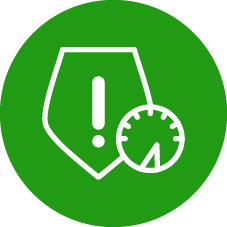
Risk Assessments
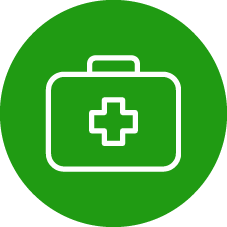
First Aid Training

Looking for expert health & Safety support?
We can help you focus on your business by taking care of all your health & safety needs.
Let us know how we can help or ask about our free initial H&S review.
Safety solutions that grow with you
Get in Touch
Subscribe to our newsletter
Office Address: The Health & Safety Dept, First Floor, 3 Brook Office Park, Emersons Green, Bristol, BS16 7FL | VAT Number: 900674738 | Registration Number: 06316590
Copyright © 2007 – 2023 The H&S Dept Ltd. H&S DEPT is a registered trademark belonging to The H&S Dept Limited.

